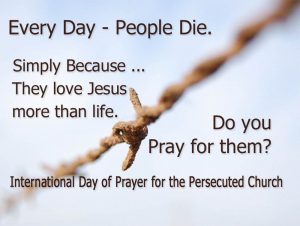
John 15
Abiding in Jesus
Immediately after Jesus celebrated the Passover with his disciples, he led them out of the room and on a walk up towards the mount of Olives. Little did they know that this was the most significant night in all of human history.
Jesus was walking to his arrest and was preparing himself to be crucified. But even in this incredibly stressful time, Jesus was teaching his disciples. He used the backdrop of the grapevines to teach them about the importance of bearing fruit by abiding in the vine.
Jesus opens the dialogue with the powerful statement, “I am the true vine…” (John 15:1)
Jesus is the vine the Father is the vinedresser, and the true followers of Jesus are the branches. But branches are not simply for show, they have a role to play and that role is to produce fruit. The true followers of Jesus will produce fruit.
In John 15 we have some incredible promises and terrifying warnings in the words of Jesus.
We love the promise of answered prayer in verse 7 and verse 16, but these promises must be read in the context of the teaching of Jesus. In verse 8 we read that the purpose of producing fruit is to bring glory to God the Father. If we pray that the Lord would allow us to bear fruit, he will surely answer that prayer.
Are we praying that God would bless us with lasting fruit, for His glory?
The challenge facing the church today is, what are we praying for? Are we praying for peace, prosperity, and comfort? Are we praying for a return to “normal”? All the while, God invites us to pray for fruit, fruit that will last.
DR. G. Campbell Morgan writes, “any prayer which does not react upon my life and make it a more fruit-bearing life, is not a prayer at all”
The terrible warning of this passage is found in verse 6. These branches that are thrown into the fire were at one time attached to the vine. They were possibly attached to the vine because there was promise of peace, comfort, personal blessing, and cultural acceptance.
However, these branches never had a desire to produce fruit, because they were never abiding in the vine.
In January 2020, I would suggest that the majority of church attendees had no desire to bear any fruit. As we read the words of Jesus in John 15, we see that the key to producing fruit is abiding in Jesus. When we learn how to abide in Jesus, we will know unshakable peace.
One of the fruit that comes from abiding is peace, we know this from Galatians 5:22-23.
If you listen to Christians today there is a lot of fear being expressed. Fear of the pandemic, the financial state of the world, the political state of our nation. Sadly, this is fear being expressed by people who claim to be abiding in the vine. Oh, they will say they are just being realistic, but they are walking in fear.
Fear is not a fruit of the Spirit. Fear is not a result of abiding in the vine. Walking in fear is evidence that you are not abiding in the vine.
One of the evidences of abiding in the vine is getting our sustenance from the word of God (see Psalm 91:1-2, Habakkuk 3:17-19, Psalm 23:4, 1 John 4:18)
The reward for not looking to the world for sustenance and trusting Jesus is life and peace.
Jesus is the true vine and we who know Jesus as Lord of our lives are the branches. In John 15:16 Jesus makes a dramatic statement, “You did not choose me, but I chose you and appointed you that you should go and bear fruit and that your fruit should abide, so that whatever you ask the Father in my name, he may give it to you.”
We must never make the mistake of thinking that we had any part in our own salvation – we are saved by grace alone (Ephesians 2:8).
The branch is weak and useless if it is not connected to the vine. It is only good for being thrown into the fire. The branch is only as good as it is abiding in the vine.
As Christians we are only going to be producing fruit if we are abiding in Jesus. Getting our daily sustenance and feeding on the vine, getting our life from Jesus.
Abiding in Christ is a cultivated discipline that takes time and effort. Abiding comes from spending time feeding on God’s word, reading the Bible, praying and staying connected with other Christians.
There is a significant difference between simply being a part of the church by coming to the church when it is convenient and abiding in the vine, getting your life from Jesus through the word and the presence of the Holy Spirit.
Where are you today?
Are you abiding or, are you walking in fear?
Are you simply attached to the vine, but you know that you are not really abiding in Christ?
Now more than ever we need to know the lifestyle of abiding in Christ.





